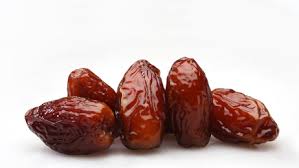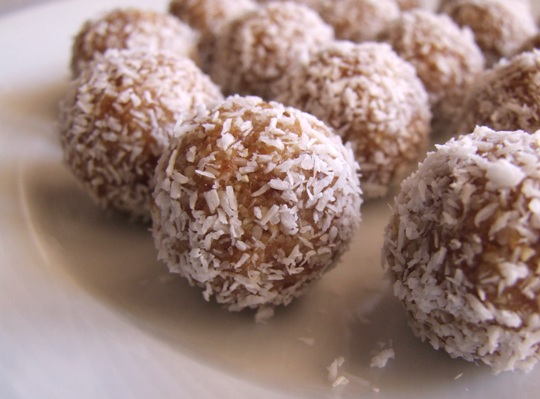Ramadan is the ninth month in the Muslim calendar. During this month the Muslims fast from sunrise to sunset. They do not drink or eat anything during daylight as they just worship and reflect. Meals are only served before sunrise and after sunset, and they eat with their family or with the community. This article talks about Ramadan food to guide first time observer of Islam fast on what food to serve.
Observer of Islam fast believes that they will learn to be more modest, patience and spiritual so they follow the tradition to the letter. Observing the tradition means eating and drinking only on the hours allowed. So, it is important to serve heavy meal to get through the day of drinking and eating nothing.
In case you are wondering if all fast on Ramadan, the answer is no. Pregnant women, the sick, mentally ill, nursing women, women in their period and the elderly are exempted from fasting. In some communities, those who are exempted from fasting are required to do charity work. They will compensate by helping the poor during the suhoor and iftar.
In countries like Canada, Muslims have to fast longer due to longer daylight hours. If you are a Muslim living in countries with longer daylight hours, serving hearty and heavy meals is a must for suhoor. Some muslims eat dates after the sun sets and before the iftar meal. During the night, they can eat and drink until the next day.
And since food plays an important role in the celebration of Ramadan, you need to consider the food you will prepare and serve carefully. There are traditional foods served either in the community or at home. One thing for sure, meals for suhoor and iftar always include vegetables, breads, halal meats, cheeses, fresh fruits and sweets.
Ramada Food
There are muslims all over the world. So, the food served may vary according to where ones reside. In order to help decide which food to serve at Ramadan, I have compiled some foods often served during suhoor and iftar.
- Dates, dried fruits, pistachios and other nuts
- Fresh fruits
- Chabbakia – This is served in Morocco, a dessert made of dough and coated with honey, sesame seeds and flavored with orange blossom water.
- Ramazan Kebabi – This is a dish made of lamb, yogurt, and onions and served with pita bread. It is served in turkey.
- Chapatis – In Pakistan and India, they also served chapatis. These are unleavened flatbread usually rolled up with meats and vegetables.
- Tabbouleh – This is a salad made of tomatoes, garlic, parsley and bulgur wheat. It is often served in Middle East countries.
- Fattoush – In Arab countries and Lebanon they also served a salad with pita bread, it is called fattoush.
- Bamia – In North Africa they served a dish called Bamia. The dish is made of okra and meat.
- Mujadarra – This dish is made of lentils and rice. It is very popular in the Middle East.
- Ful Medammes – This spread is made of fava beans and cooked with garlic. It is prepared and served in North Africa.
- Kolak – In Indonesia they served a fruit dessert called Kolak. This dessert is made of coconut milk, palm sugar and pandanus leaf. The fruits often used are banana or jackfruit.
- Jalebi – This is deep friend dough is also a popular Ramadan food. It is served in Pakistan.
- Kabsas, Biryani and Mansaf – These are meals also served in some Muslim countries in Asia.
- Mahshi – This is a popular dish in Levant and Egypt. The stuffed vegetables are made of peppers, tomatoes, eggplants, vine leaves, and zucchinis. These vegetables are stuffed with rice that has been flavored.
- Masgouf – This is another famous dish during Ramadan in Iraq.
These Ramadan foods are often served during suhoor and iftar by muslims all over the world. By the way, in case you are wondering why dates are a staple in Middle East and during Ramadan. This is because dates are a good source of sugar, fiber, potassium, carbohydrates and magnesium.

Fasting can cause minor health problems such as low blood sugar, lethargy and headaches. To avoid these minor heath problems eat foods that break the fast and keep the tummy full.
Ramadan Food Recipes
Coconut dates are a Ramadan recipe that uses dates, a popular Ramadan food. Coconut dates are eaten in Middle East and Asia. It is a sweet appetizer or dessert for Ramadan and celebrating Eid ul Fitar.
Coconut Dates
Ingredients:
- ¾ lbs of blanched almonds
- 1 ½ lbs of soft pitted dates
- 1 teaspoon of ground cardamom
- ½ cup of butter
- 2 cups of flaked coconut
Procedure:
- Fry the blanched almonds until golden brown. Place them on paper towel to remove the excess oil.
- In a heavy sauce pan, melt butter. Throw in the dates, ground cardamom and stir well over low heat. Stir until well blended and prevent the dates from sticking to the pan. Remove from the heat and leave to cool.
- Using your hand, get a small amount of date mixture and place them in the middle of your palm. Shape into a ball. Once rolled into ball, indent into the center an almond and press. Fold the sides and shape into date or reshape into oval. Repeat the process with the remaining date mixture.
- Once done, roll each into the flaked or desiccated coconut. Arrange on a dish and serve.

Leave a Reply
You must be logged in to post a comment.